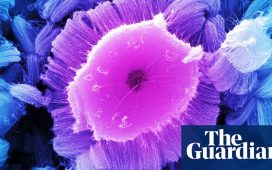Following is a summary of current science news briefs.
Japan space agency rocket engine explodes during test
A rocket engine exploded during a test in Japan on Friday but there were no injuries, an official at Japan’s Education, Science and Technology Ministry said. The explosion of the Epsilon S engine at the Japan Aerospace Exploration Agency (JAXA) testing site is the latest in a series of failures that have deflated Japan’s space ambitions.
NASA rover reveals new evidence about organic molecules on Mars
Evidence is mounting about what may be a wealth of organic molecules – a potential indicator of life – on Mars, with new findings from NASA’s Perseverance rover suggesting the presence of a diversity of them in rocks at a locale where a lake existed long ago. The latest evidence comes from an instrument called SHERLOC mounted on the six-wheeled rover’s robotic arm that enables a detailed mapping and analysis of organic molecules. Researchers are reporting SHERLOC’s findings from 10 places on two geological formations on the floor of Jezero crater.
India blasts Chandrayaan-3 lander toward moon’s south pole
India’s space agency launched a rocket on Friday that sent a spacecraft into orbit and toward a planned landing next month on the lunar south pole, an unprecedented feat that would advance India’s position as a major space power. The Indian Space Research Organisation’s (ISRO) LVM3 launch rocket blasted off from the country’s main spaceport in the southern state of Andhra Pradesh on Friday afternoon, leaving behind a plume of smoke and fire.
(With inputs from agencies.)










